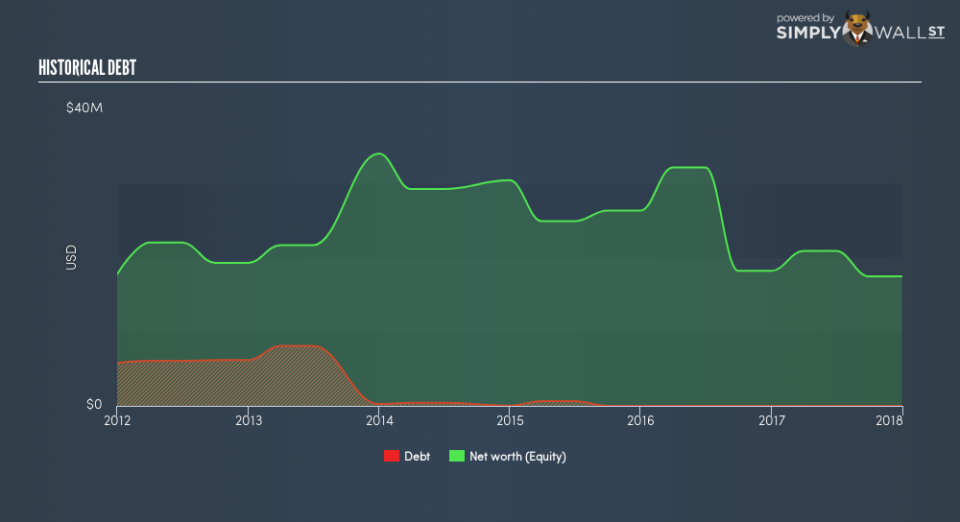How Financially Strong Is Corero Network Security plc (LON:CNS)?

The direct benefit for Corero Network Security plc (LON:CNS), which sports a zero-debt capital structure, to include debt in its capital structure is the reduced cost of capital. However, the trade-off is CNS will have to adhere to stricter debt covenants and have less financial flexibility. While CNS has no debt on its balance sheet, it doesn’t necessarily mean it exhibits financial strength. I will go over a basic overview of the stock’s financial health, which I believe provides a ballpark estimate of their financial health status.
See our latest analysis for Corero Network Security
Does CNS’s growth rate justify its decision for financial flexibility over lower cost of capital?
Debt funding can be cheaper than issuing new equity due to lower interest cost on debt. But the downside of having debt in a company’s balance sheet is the debtholder’s higher claim on its assets in the case of liquidation, as well as stricter capital management requirements. CNS’s absence of debt on its balance sheet may be due to lack of access to cheaper capital, or it may simply believe low cost is not worth sacrificing financial flexibility. However, choosing flexibility over capital returns is logical only if it’s a high-growth company. Opposite to the high growth we were expecting, CNS’s negative revenue growth of -2.7% hardly justifies opting for zero-debt. If the decline sustains, it may find it hard to raise debt at an acceptable cost.
Does CNS’s liquid assets cover its short-term commitments?
Since Corero Network Security doesn’t have any debt on its balance sheet, it doesn’t have any solvency issues, which is a term used to describe the company’s ability to meet its long-term obligations. But another important aspect of financial health is liquidity: the company’s ability to meet short-term obligations, including payments to suppliers and employees. With current liabilities at US$4.2m, the company has maintained a safe level of current assets to meet its obligations, with the current ratio last standing at 1.05x. For Software companies, this ratio is within a sensible range as there’s enough of a cash buffer without holding too much capital in low return investments.
Next Steps:
Having no debt on the books means CNS has more financial freedom to keep growing at its current fast rate. This may mean this is an optimal capital structure for the business, given that it is also meeting its short-term commitment. Going forward, its financial position may change. Keep in mind I haven’t considered other factors such as how CNS has been performing in the past. I suggest you continue to research Corero Network Security to get a more holistic view of the stock by looking at:
Historical Performance: What has CNS’s returns been like over the past? Go into more detail in the past track record analysis and take a look at the free visual representations of our analysis for more clarity.
Other High-Performing Stocks: Are there other stocks that provide better prospects with proven track records? Explore our free list of these great stocks here.
To help readers see past the short term volatility of the financial market, we aim to bring you a long-term focused research analysis purely driven by fundamental data. Note that our analysis does not factor in the latest price-sensitive company announcements.
The author is an independent contributor and at the time of publication had no position in the stocks mentioned. For errors that warrant correction please contact the editor at editorial-team@simplywallst.com.

 Yahoo Finance
Yahoo Finance 
